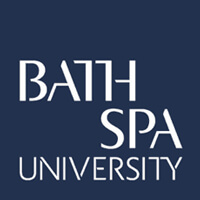fees waived
Environmental Science, BSc (Hons)
Bath Spa University, United Kingdom
Ranking in UK
Geography and Environmental Science
Costs
food & rent S$18.8K / year
Entry requirements
Scholarships
2 available
Unlimited quantity
Unlimited quantity
Unlimited quantity
Limited quantity
Information
Code
Code
Intakes
Website (External)
Programmes
Information
Duration
2029
This hands-on Environmental Science course explores biological and geographical perspectives of the natural world, taught by enthusiastic, accredited professionals. Students can design a tailored program to match their interests, developing practical fieldwork skills using industry-standard tools, with opportunities in the UK and abroad. Key topics include climate change, pollution, biodiversity loss, and sustainability, equipping learners with evidence-based skills to address these global challenges. The program, accredited by the Royal Society of Biology, ensures a strong foundation in biological knowledge and transferable skills, preparing graduates for employment.At Bath Spa's Newton Park campus, surrounded by diverse natural environments, the course emphasizes outdoor learning. In the first year, students cover core areas like ecology and biodiversity. The second year delves into conservation, environmental management, and options such as climate change or biotechnology, with field trips like one to Italy. The final year includes a dissertation and modules on topics like marine biology or disasters, alongside practical projects and international trips, such as to Spain. Assessment typically combines coursework and examinations, with potential additional costs for field trips.
Year one Environmental science is a broad field of study and at Bath Spa it’s studied from two related perspectives – biological and geographical. You’ll cover both these aspects in your core first year modules, along with ecology and biodiversity. Year two You’ll study critical aspects of environmental science in more depth – in particular ecology and conservation, environmental management and sustainability. There’s also a wide range of further topics to choose from, either building your course around your particular career aspirations, or keeping your options open with a more general approach. Topics include microbial applications and biotechnology, biodiversity, river and coastal systems, environmental hazards, climate change and sustainability, and science communication. You’ll have plenty of opportunity to do practical work in the field and laboratory, and you also have the opportunity to further enhance your employability skills with a work placement. The optional field trip to Italy offers a unique opportunity to explore geographical themes in a highly dynamic, real-world context. On this trip you’ll learn about a range of topics such as earthquake disasters, flood hazards, air quality and pollution, climate change impacts and vulnerabilities, regional development, sustainability and urban geographies. You’ll also have opportunities to experience the regional diversity, food and culture of Italy. Please note that some of our field trips may incur additional costs on top of your course fees. Financial support for field trip costs may be available via the Bath Spa University International Travel Fund. Year three You’ll choose a subject to research in-depth through your dissertation, and select optional modules from topics as wide-ranging as animal behaviour, nature conservation, climatology, marine biology, plants and people, digital imaging, development and disasters, and coastal and river management. You’ll also continue to develop your practical skills with project work on campus and residential field trips in the UK and abroad. You can also bring in modules from other areas if you want to develop interests in managing sustainability, science publishing, preparing to be a freelancer or starting your own business. An optional field trip to Spain allows you to study topics such as urban development, wildfires and cascading hazards, social inequalities, urban sustainability policies, city planning, coastal erosion, nationalism and independence movements, heat waves, Olympic legacies or urban flood risks.
A local representative of Bath Spa University in Singapore is available online to assist you with enquiries about this course.

